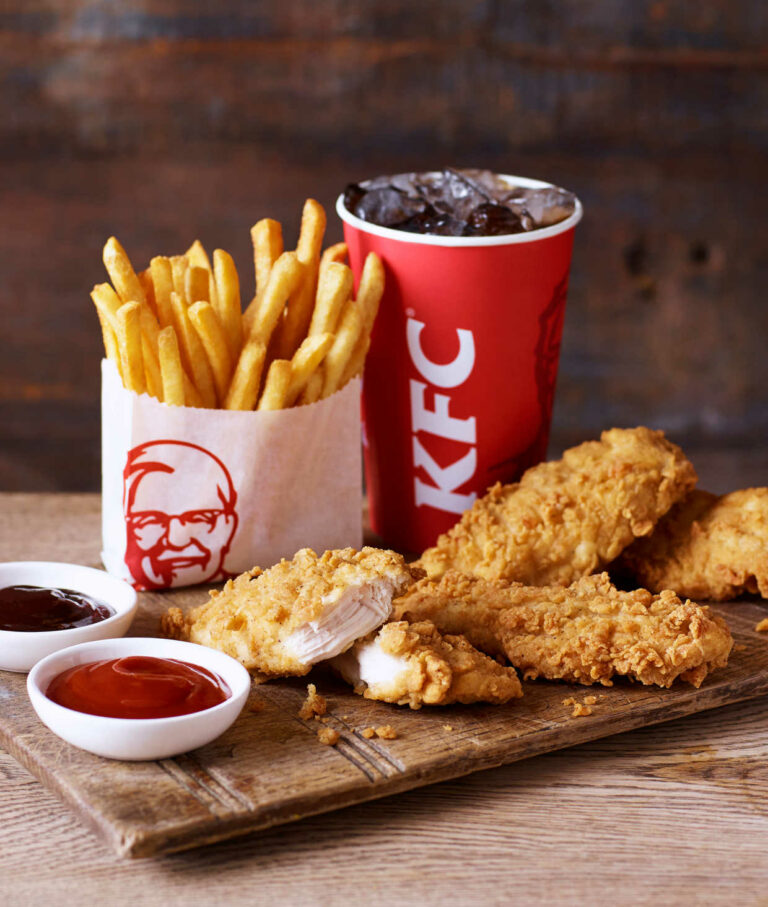It’s one of the most famous brands in the world. So how did KFC cock up on such a monumental scale?
The mea culpa summed up the whole fiasco well. ‘A chicken restaurant without any chicken. It’s not ideal,’ read the KFC advert, below a picture of a bargain bucket, the letters morphed to FCK. Online at least, it seemed to go down well with customers who appreciated the humour as they struggled on without their favourite takeaway.
A week into the brand’s decision to switch logistics providers from Bidvest to DHL, it seemed nothing was going right.
As well as having to close 750 of its 900 restaurants, it was reported pallets of KFC branded chicken had been literally dumped at the side of the road after drivers were unable to make deliveries, and even charities were refusing to take the rapidly expiring meat due to safety concerns.
The GMB union pumped out gloating statements, literally saying ‘we told you so’. “We tried to warn KFC this decision would have consequences,” said Mark Rix, GMB national officer. “Three weeks ago, they knew they had made a terrible mistake, but by then it was too late.”
KFC said in a statement on its website it had been ‘a hell of a week’ and the situation was ‘not ideal’ but it was “making progress and every day more fresh chicken is being delivered to our restaurants”.
So what happened? And when will it be put right?
Last November, KFC announced it had appointed DHL and Quick Service Logisitics (QSL), which develops software for distribution networks, to manage the supply and distribution of food products, packaging and consumables to its network of restaurants around the UK. The decision to move its business meant Bidvest had to close one of its depots with the loss of 255 jobs.
On the morning of the changeover from Bidvest to DHL, 13 February, it quickly became clear something was going wrong. Chicken was simply not leaving the DHL depot in Rugby.
As it became clear no chicken was getting out, the majority of sites around the UK had to close, 80% of which are operated by independent franchisees. KFC said in its company owned restaurants staff were being encouraged to take holiday but would not be forced to do so.
In an increasingly bizarre chain of events, disgruntled customers started responding in peculiar ways. “For those who contacted the police about KFC being out of chicken…please STOP” police officers in Manchester pleaded on Twitter.
Police in London joined them in tweeting the chicken shortage was “not a police matter”.
Although it was clear something had gone badly wrong, no-one, not KFC, or DHL or even the highly critical union could pinpoint exactly what was stopping the chicken getting from the distribution centre to the restaurants.
The speculation is the task was too complicated and the firms were ill-prepared. “Bidvest had a network of distribution centres across the UK – now DHL are trying to do the job with just one,” said Rix. “It’s an absolute cock up. DHL are trying to run the whole operation out of one distribution centre, where conditions are an utter shambles.”
What exactly was it that caused the logistics problems over the past couple of weeks? A KFC spokesman told PB: “Although initially triggered by start-up problems (including IT) in moving to our new distribution partner, due to the complexity of our supply chain (we deliver hundreds of items to our 900 restaurants), this created a knock-on effect to the wider system and processes.”
A union spokesman told PB that there were also issues with recruiting and training enough drivers. One driver walked out after the first day because the warehouse was so chaotic, the spokesman said. In addition, the DHL failed to register the depot with the council, the union told PB, meaning that while there was no safety issue with the chicken, DHL wasn’t legally allowed to start distributing it.
There have also been rumours swirling there may have been a deliberate attempt to disrupt the process of changeover from Bidvest to DHL because of union discontent about the loss of the contract and refusal to supply refrigerated lorry drivers, but the KFC spokesman said this was untrue.
“The disruption was the result of a fundamental breakdown in the implementation of DHL’s new distribution system. We parted with Bidvest on good terms,” he said.
The current situation is still far from ideal. “Over 97% of our restaurants are now open for business, however, due to the ongoing distribution challenges DHL is experiencing, disruption to some restaurants may continue, including reduced menus.”
Back in the autumn when the new contract was announced, DHL said it was going to ‘set a new benchmark’, in foodservice logistics. It does appear to have done this, but not in the way that was envisaged, and it will take some time before the whole chain can be sure the situation is fully resolved.


